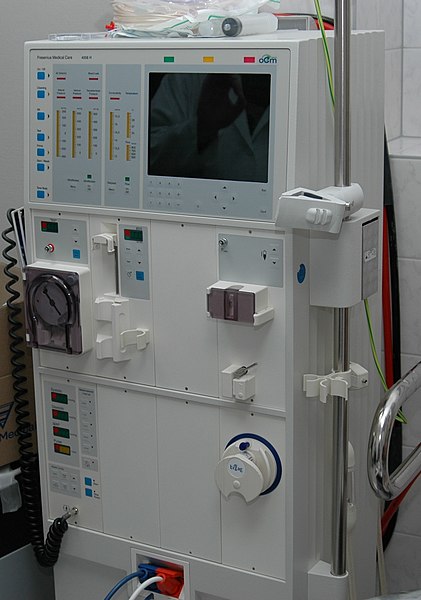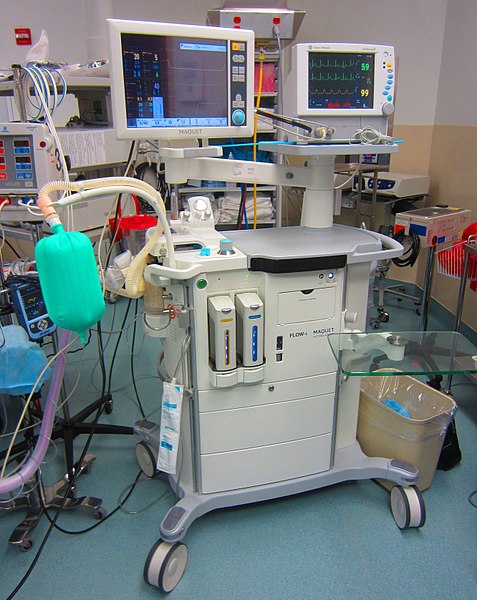Biomedical engineering (BME) or medical engineering is the application of engineering principles and design concepts to medicine and biology for healthcare applications. BME is also traditionally logical sciences to advance health care treatment, including diagnosis, monitoring, and therapy. Also included under the scope of a biomedical engineer is the management of current medical equipment in hospitals while adhering to relevant industry standards. This involves procurement, routine testing, preventive maintenance, and making equipment recommendations, a role also known as a Biomedical Equipment Technician (BMET) or as a clinical engineer.
Telemedicine system. Federal Center of Neurosurgery in Tyumen, 2013
Hemodialysis, a process of purifying the blood of a person whose kidneys are not working normally
Data obtained from crash test dummy impacts are integral to the field of biomechanics.
Micromass cultures of C3H-10T1/2 cells at varied oxygen tensions stained with Alcian blue
In medicine, monitoring is the observation of a disease, condition or one or several medical parameters over time.
Display device of a medical monitor as used in anesthesia
A patient of an intensive care unit in a German hospital in 2015, with a monitoring screen displaying a graphical electrocardiogram, the heart rate and blood pressure all in real time
An anesthetic machine with integrated systems for monitoring of several vital parameters, including blood pressure and heart rate
Given Imaging Capsule endoscopy








